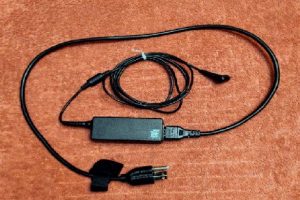The Digital Divide: Millions of Computers are Going to Waste

Nearly 50 million people across America — including students, the poor, and seniors — do not have Internet access, in large measure because they simply do not own a computer. At the same time, we landfill millions of legacy computers each year, computers which in many cases either work or can be made to work. There ought to be a way to connect those with too many computers to those who have none. And now there is.
Step 1: How To Start

It has been said that it is better to give than to receive, and for those with legacy computers that is surely the case. You are able to help others with your donation, a benefit that may well lead to better grades, more income, and greater socialization for the recipient. Each donated computer means one less toxic item in our landfills. And, not to be overlooked, it may be possible to earn a tax deduction.
Step 2: Privacy & Confidentiality

Before computers can be donated, there is the very practical reality that such devices often have extensive information that is both private and confidential. Law firms, medical practices, hospitals, accountants, and many other potential donors simply cannot give out computers without assuring that such equipment will not reveal restricted information. Unfortunately, it is not enough to “delete” files and folders.
Step 3: Finding Recipients

There’s no shortage of legacy computers — “legacy” is a polite term for out-of-date. Supply is not an issue. The equipment gathering dust in America’s closets, attics, basements, and storage units is uncountable. Not only is supply not an issue, neither is demand. Millions of people simply do not have computers, so how do we get updated, working, legacy computers into the hands of those in need?
How To Get Free & Low-Cost Internet Access

Low-cost and free Internet services are now available for 10 million American households through the federal government. Here’s how to see if you qualify.
Computers: Race, Advantage & Disadvantage

There is a connection between computers and race. In 2021, the Pew Research Center reported that “eight-in-ten White adults report owning a desktop or laptop computer, compared with 69% of Black adults and 67% of Hispanic adults. Eight-in-ten White adults also report having a broadband connection at home, while smaller shares of Black and Hispanic […]
What About Batteries & Power Cords?

Computer batteries are in a world of their own when it comes to laptops and notebooks. Every manufacturer has a different way to incorporate a battery into given models. With any luck, a machine can be left on, and the battery will simply power up and work. If that’s not the case, then there are several options.
FAQ

Computer donations raise a number of questions. Here are some of the most popular that have arisen with the RightWorx program. Take a look, see what you think, and feel free to send in your questions.
